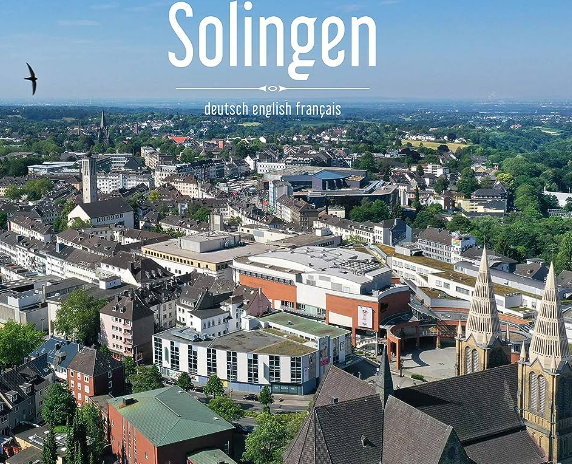Spotlight on German Knives: The Legacy of Solingen
Synonymous with unparalleled quality in the world of knives, Solingen’s reputation is hard-earned. Located in North Rhine-Westphalia, Germany, this city, affectionately known as “The City of Blades”, boasts an illustrious history of producing some of the world’s most sought-after knives.
The Foundations: How Solingen Became the Blade Capital
Solingen’s journey to becoming a blade-making titan began in the medieval era. Blessed with an abundance of high-quality iron resources and strategic water routes, it quickly became a favorable location for blacksmiths and craftsmen. As centuries passed, the city’s blade-making techniques evolved, combining traditional methods with innovative approaches, resulting in a formidable reputation across Europe and beyond.
An Emphasis on Perfection
Solingen’s knifemaking isn’t about mass production. It’s about art, skill, and precision. The comprehensive manufacturing process that each knife undergoes in Solingen ensures that every blade not only looks impeccable but performs flawlessly too.
Key Brands and Makers
- Wüsthof: An enduring emblem of quality since 1814, Wüsthof’s knives represent a culmination of meticulous craftsmanship. Each knife experiences about 40 stages in its creation process.
- Zwilling J.A. Henckels: Founded in 1731, this brand is one of the oldest knife manufacturers globally. Its iconic Twin logo graces kitchens in numerous countries, signifying premium quality.
- Böker: Böker’s history, which spans over several centuries, is not limited to kitchen knives. Their impressive range encompasses sports and collector’s knives too.
- Herder: Known for its “Windmill” knives, Herder emphasizes razor sharpness, achieved through traditional handwork.
- Güde: For over a century, Güde has been producing hand-forged knives, maintaining a tradition that results in unique and exceptionally performing blades.
- Messermacher: This brand offers customized knives, blending the artistry of the craftsman with the desires of the client for truly bespoke pieces.
- Otter Messer: With roots dating back to the 19th century, this brand is known for its pocket and utility knives, combining functionality with aesthetic beauty.
The German Steel: Backbone of Quality Blades
German knives are often crafted from a specific type of stainless steel, known as X50CrMoV15. This name might sound complex, but it’s a testament to the components that make these knives exceptional:
- X denotes the use of stainless steel, a material that’s resistant to rust.
- 50 signifies that the material contains 0.5% carbon. Carbon enhances the blade’s hardness, allowing it to retain sharpness longer.
- CrMoV15 indicates the blend of chromium, molybdenum, and vanadium. Chromium gives the steel its rust-resistant properties, molybdenum boosts hardness and sharpness retention, and vanadium improves wear resistance.
This specific combination ensures that German blades are not only sharp but also durable and resistant to external elements.
What Sets German Knives Apart?
- Bolster Design: This distinct feature ensures the knife is balanced, providing both weight and a protective barrier for fingers.
- Blade Thickness: Known for their robust construction, German knives have thicker blades, ensuring longevity and versatility.
- Curvature: Their blades usually have a curved design, making the rocking motion while chopping smooth and efficient.
The Art of Maintaining German Blades
To maintain the legacy of a Solingen blade, proper care is non-negotiable. Regular sharpening, preferably with a honing rod or a quality whetstone, is essential. Hand washing, instead of using a dishwasher, and drying immediately can add years to your knife’s life.
Solingen’s Influence Today
The city continues to inspire blade makers globally. Its commitment to quality, innovation, and tradition serves as a benchmark for what exceptional craftsmanship should look like. For professional chefs and home cooks alike, owning a Solingen knife signifies not just owning a tool but a piece of history.
In Conclusion
Solingen’s reputation is well-deserved. From its rich history to the modern-day innovations, Solingen represents the pinnacle of knife-making. For those who are serious about their culinary tools, German knives, and especially those hailing from Solingen, offer an experience that’s unmatched.
Coming Soon on Best-Chef-Knife.com
Eager to learn more aStay tuned for our next feature where we dive deep into the comparison between German and Japanese knives. Explore the nuances, craftsmanship, and unique attributes of each. Discover which knife suits your culinary style best. Don’t miss it!
